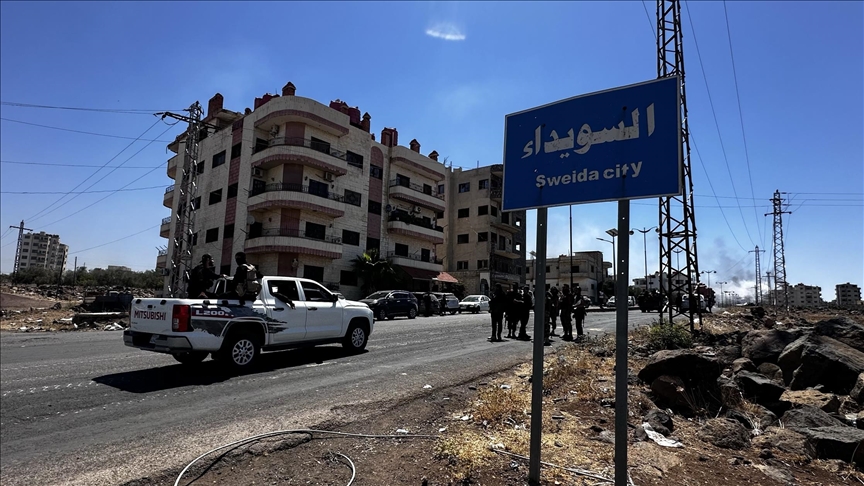"Human Rights Watch" warns of escalating humanitarian crisis in Sweida

The organization "Human Rights Watch" warned of the deteriorating humanitarian situation in the province of Sweida in southern Syria, due to ongoing armed clashes and human rights violations, calling for the deployment of neutral and professional security forces to protect civilians without discrimination.
The organization explained in a statement that the clashes between armed factions and tribal fighters, along with Israeli airstrikes and the intervention of Syrian government forces, have led to the disruption of basic services such as electricity, water, and healthcare, in addition to the rise of sectarian hate speech and the spread of revenge risks against Druze civilians in other areas of Syria.
The statement quoted Adam Coogle, deputy Middle East director at the organization, as saying: "While local communities in Sweida suffer from displacement and shortages of food, water, and healthcare, insecurity, political obstacles, and deep mistrust hinder humanitarian aid. Regardless of who controls the territories, humanitarian aid must be allowed to enter immediately and without interference."
The organization also revealed that the Syrian government prevented United Nations agencies and humanitarian organizations from accessing the province citing "security concerns," referring to a circular issued by the Syrian Foreign Ministry on July 20 requiring international organizations to obtain prior approval before entering the area, hindering the urgent response to the crisis.
Despite the ceasefire announced on July 21 and the evacuation of Bedouin families that were besieged in Sweida, the organization expressed concern about the lack of guarantees for the safe return of displaced persons or addressing the collapse of basic services.
It pointed out that the ceasefire agreement did not include any provisions obliging the parties to protect civilians, ensure aid access, or hold those responsible for violations accountable, and representatives of the Bedouins were excluded from the negotiations.
The organization highlighted a speech by Syrian President Ahmed al-Shar'a on July 19, in which he described the armed factions in Sweida as "outlaws," while praising the influx of tribal fighters to the region, which it saw as a "dangerous sign" that could encourage retaliatory actions by unofficial parties instead of enhancing security through state institutions.
"Human Rights Watch" emphasized that: "Empowering non-state armed groups deepens chaos, while Syria needs professional and accountable security forces representing all sects and protecting them without discrimination."
It also called for the restoration of basic services, ensuring immediate protection for civilians and humanitarian workers, and allowing independent monitors access to affected areas to monitor violations and ensure accountability.